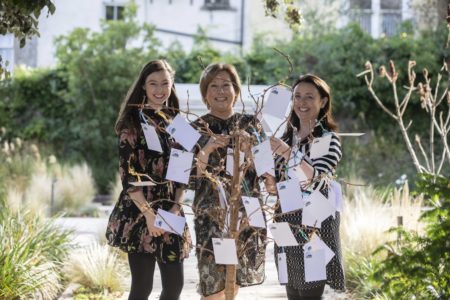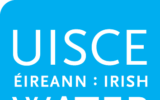24 October 2018
By Bryan Smyth
bryan@TheCork.ie
Ag Eisteacht builds a ‘Tree of Hope’ at Resilience event
Cork-based charity, Ag Eisteacht, created a ‘Tree of Hope’ at its Resilience event at Nano Nagle Place in Cork on Wednesday 24th October to illustrate the role that Ireland’s frontline practitioners have in responding to clients who turn to them for support, especially acknowledging the impact of Adverse Childhood Experiences (ACEs), and remembering that there is always hope.

Stacey Walsh, of Ag Eisteacht, Dr Maeve Hurley, founder of Cork charity, Ag Eisteacht and Susan O’Mahony of Ag Eisteacht,
Cork charity, Ag Eisteacht, built a ‘Tree of Hope’ at its Resilience event at Nano Nagle Place on Wednesday 24th October
Picture: Clare Keogh
Front-line practitioners attended the event which included the screening of Resilience: The Biology of Stress & the Science of Hope, a one-hour documentary which premiered at the Sundance International Film Festival and won Best Documentary at the Carmel International Film Festival 2016. It explores the effects of toxic stress on early brain development and the impact it can have on health.
Dr Maeve Hurley, CEO and founder of Ag Eisteacht, said: “One of the key messages in the documentary is ‘the child may not remember, but the body remembers.’ There is a correlation between early childhood adversity and poor health outcomes in later life. Toxic stress explains how ACEs can ‘get under the skin’ and trigger biological reactions that lead to those outcomes.
“The three principles to improve outcomes for children and families are supporting relationships, reducing sources of stress in the lives of children and parents and strengthening core life skills.”
Ag Eisteacht’s ABLE training (Adopt a relational approach, Build, Listen and Empower) helps frontline workers to build responsive relationships, listen actively and reflectively and to empathise, relate and respond appropriately to individuals, while attending to their own wellbeing.
“The quality of the practitioner/ client relationship is widely recognised as a key component of improved outcomes,” said Dr Hurley.
“Our training helps practitioners to be reflective in their interactions with their clients, adopt a ‘narrative of hope’ and remember that people who have experienced adversity in childhood are not irrevocably damaged. Our ABLE intervention aims to use these ‘moments of opportunity’ to empower clients and help them think about ways in which they might build their own core life skills or reduce stress in their lives. These steps can make a difference to their long-term health and well-being.”
During the event, attendees were invited to share their responses and thoughts on how they could use the information on ACEs in their own practice. These were then used by Ag Eisteacht to build a ‘Tree of Hope’ to highlight the importance of adopting a relational approach and a narrative of hope.
The event included a keynote speech on ‘Responsive relationships can last a lifetime; healing from adversity’ by Dr Nicola O’Sullivan, mental health and wellbeing practitioner and partner with Caidreamh, a partnership of healthcare professionals working in psychology and children’s welfare.
A panel discussion and a Q&A session followed with Dr Maeve Hurley, Dr Nicola O’ Sullivan, Martin O’Connor, clinical coaching psychologist, and Áine Cahill, clinical social work team leader, CUMH.

